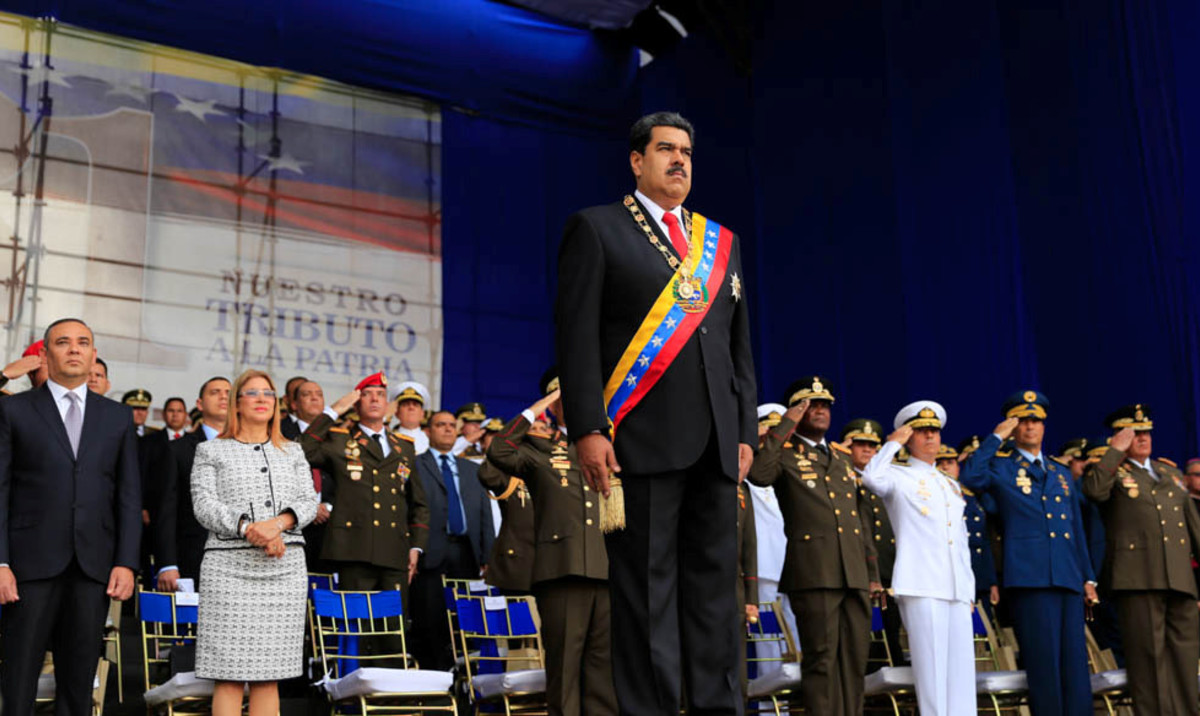The Venezuelan opposition is ambivalent in view of the exile of Edmundo Gonzalez Orotia to spain On the one hand, she regrets that his departure weakens the legitimacy of her claim to his inauguration in January as Venezuela’s president, as he seems to deserve after the results of the July 28 presidential election. On the other hand, she is happy that a 75-year-old man, father, grandfather and husband, escaped from prison and is keeping his life and the lives of his family, which were in clear danger since he agreed in April to represent the Maria Corina Machado the leader of the opposition, in the electoral contest against Nicolas Maduro the president who now refuses to leave power.
Maduro is entrenched in his position and is not even willing to hear about the possibility of leaving the doors of the Miraflores Palace, the seat of government. “The problem now is Maduro. Those around him are already beginning to understand that the situation is unbearable, but he is not. The situation is complicated,” say Venezuelan sources involved in the process. The departure of Gonzalez Orotia took place “to prevent a bloodbath” and because “it is an adult man who expected a prison sentence”.
“Where did the vote go?”: The appointment of Michel Barnier as Prime Minister of France sparked a wave of protests in the country
Although the crisis in the coalition was resolved: Gantz flew to the USA
“It doesn’t end here, the negotiations continue,” the same sources add. The United States, along with Mexico, Brazil and Colombia, are trying to seat Chavism at the negotiating table and convince him to accept defeat and carry out a transfer of powers, which in any case will not happen until January.
Amidst all this conflict with wide international implications, González Orotia, who until recently was a political activist of the last rank, remains almost unrecognized. He does not come from years of struggle on the front line like Venezuelan historical figures, for example Leopoldo Lopez or Enrique Capriles. The revolution knocked on his door one day and he was at home to open it.
Machado chose him when she could not compete on her own due to a ban by the control bodies controlled by Chavism. Few could have imagined that Machado would succeed in transferring all her political capital to Edmondo, whom no one knew, and that people would turn out to vote for him in a matter of days. Many political commentators believed that such a “legacy” of votes was impossible, especially in such a short time. They were wrong. The anti-Chavista mobilization was monumental.
The National Electoral Council (CNE), the body that was supposed to reveal the final result during the night of July 28, refused to present the protocols and therefore did not prove the victory of Chavism. The opposition, on the other hand, published on its website all those that its volunteers managed to collect in the voting centers all over the country. In them, González Urrotia almost triples the number of Maduro’s votes.
The leader is Machado, of that there is no doubt, but the departure of González Urotia from the country leaves a huge void that the opposition must fill in a complex political landscape, where anyone can be arrested at any moment. “You need to recover, get up, continue the fight,” says Machado’s team. Some of her closest aides did not know last night, minutes before it became official, that González Urrotia had accepted the Spanish offer of political asylum.
The trap that González Urrotia’s exile holds is that it will be accompanied by oblivion, as happened to many regime opponents who left Venezuela for their safety. It is true that Machado, the main engine of change, remains in the country, but the one who has the legitimacy to wear the presidential ribbon in January is González Urrotia. She sent a message on social media that left no trace of the idea that a dissolution of the opposition struggle would occur: “On January 10, 2025, President-elect Edmundo González Urrutia will be sworn in as the constitutional president of Venezuela and commander-in-chief of the national armed forces. Let it be clear to everyone: Edmondo will fight from the outside together with our diaspora and I will continue to do so here, together with you.’
The step taken by Gonzalez Orotia was treated with respect and understanding by most of the political leaders of the United Platform, which unites the main opposition parties. “Now a different struggle awaits him, to be present in the international organizations, to coordinate with the millions of Venezuelans abroad and to be the voice of the entire country,” she said Delsa Solorzanoone of Machado’s closest collaborations. Anders Kalkaan opponent of another regime, stated that he felt “relieved” when the candidate left, andJuan Pablo Guanypathe member of the assembly, promised that “Edmundo’s departure is further proof that we are fighting a shameful and humiliating dictatorship.”
Without Gonzalez Orotia, the opposition is convinced that their task is to continue to stand on their feet in Venezuela and claim the inauguration on January 10 as their own. “Because that’s what the Venezuelans voted for,” they claim.
